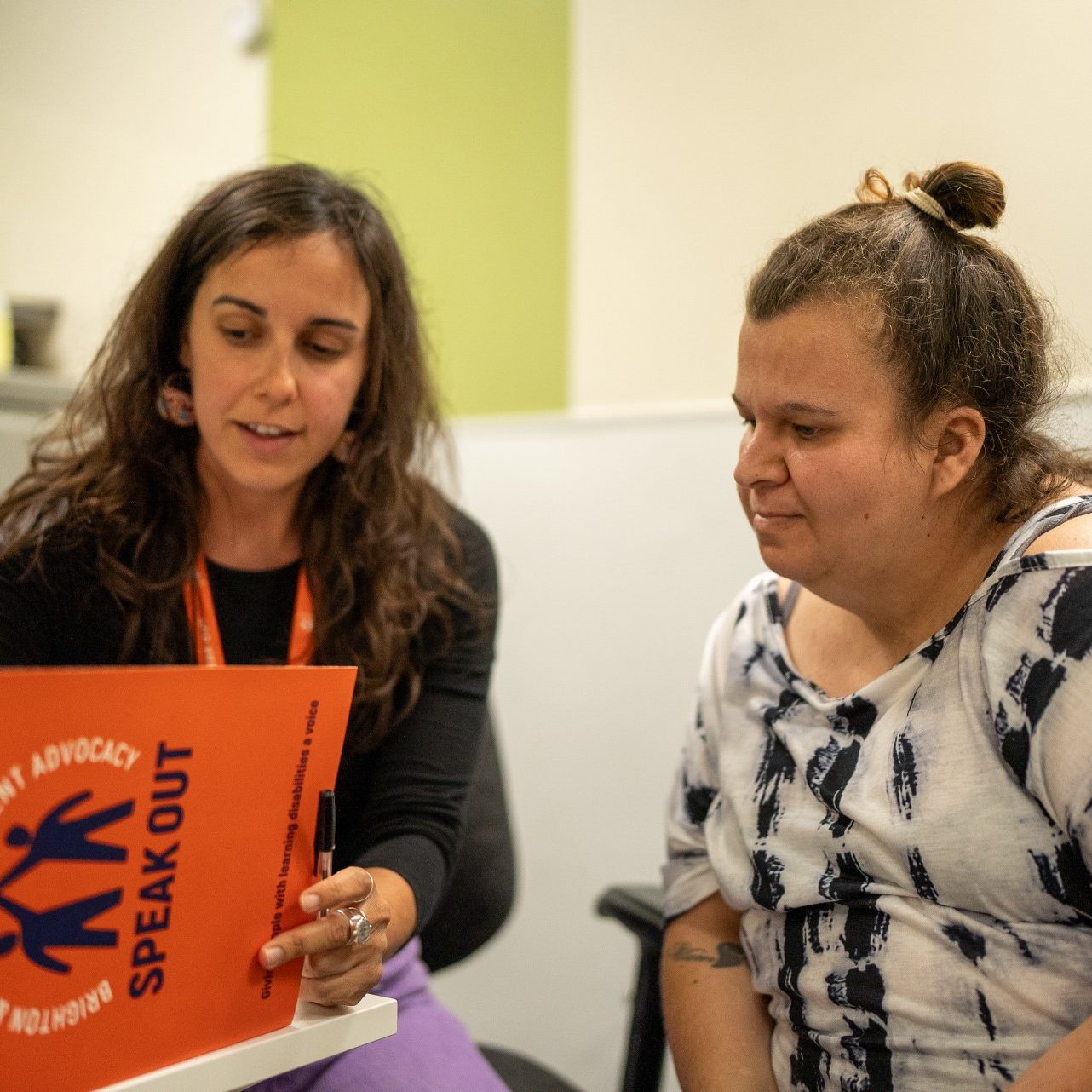All our training courses are co-delivered by experts by experience who have learning disabilities.
Our training sessions are aimed at supporting anyone who may come into contact with people with learning disabilities.
We have worked with Council staff from housing, benefits, planning, parks, refuse, and transport departments, to local voluntary organisations and private companies like Glad Rags and the Theatre Royal. The training has helped them to make action plans to improve their service for people with learning disabilities.
We can tailor the training to your needs. To get the most from the training we encourage you to book a whole day, which usually runs from 10am – 4pm. However, we know work pressures mean a half day may suit you better. We call this a ‘micro’ training session – takes place over a morning or afternoon. We are happy to deliver training in-person or online. Some ‘out of area’ training may have to take place online unless additional expenses can be paid.
You can download our brochure here: Training and Easy Read with Speak Out
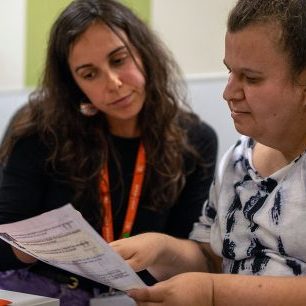
Training Courses
Learning Disability Awareness training
A training course for staff who work with/come into contact with people with learning disabilities.
The training is co-facilitated by a person/persons with learning disabilities.
Learning objectives:
- Better knowledge and understanding of people with learning disabilities
- Learn about the history and background of people with learning disabilities
- Gain more awareness about their needs
- Learn how to improve the support or customer service you provide
Who is this course for:
- Ideal for those who work in Adult Social Care, Health, or businesses where workers may come into contact with customers with learning disabilities.
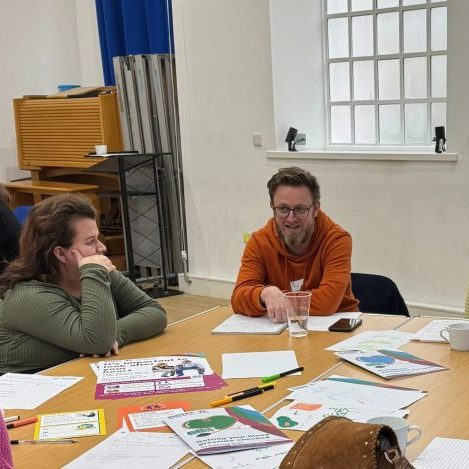
What is good support and how can advocacy help?
A training course for staff who support or work with people with learning disabilities.
This course introduces a foundation principle that starts with ensuring people have choices, make their own decisions, and get their rights met.
The course looks at the history of learning disability rights and advocacy and analyses advocacy and advocacy principles as a means to demonstrate what ‘good support’ is and how support staff can provide better support to people with learning disabilities.
Learning objectives:
- Workers who provide support to people with learning disabilities will have improved knowledge, tools, and skills to provide better support.
- The course will also be an opportunity to assess what ‘good support’ looks like.
Who this course is for?
- Ideal for those who work in the Adult Social Care or Health sectors.
This training can be tailored to different requirements. We can tailor it to support or health workers who have regular contact with people with learning disabilities. We can also adapt it for workers or people who have little or no experience of people with learning disabilities.
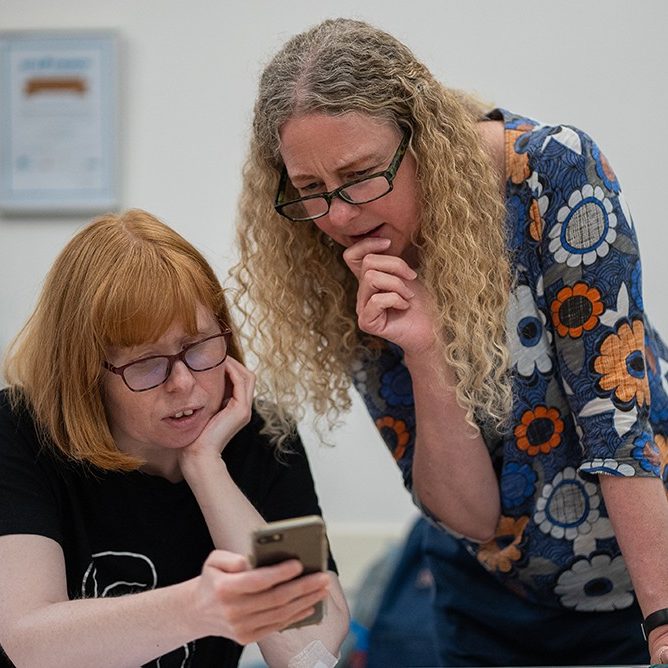
Communication Training for PWLD
Do you have a learning disability?
Do you find it hard to talk to people want to learn how to be better at talking about what you want or need?
Who is the course for?
- For people who want to learn how to be better at talking- especially if you are part of a group, either as a volunteer or in a paid role.
- Learn about what good listening is, how to speak confidently, take turns and use appropriate language.
- We will look at good and bad examples of ways of talking to people.
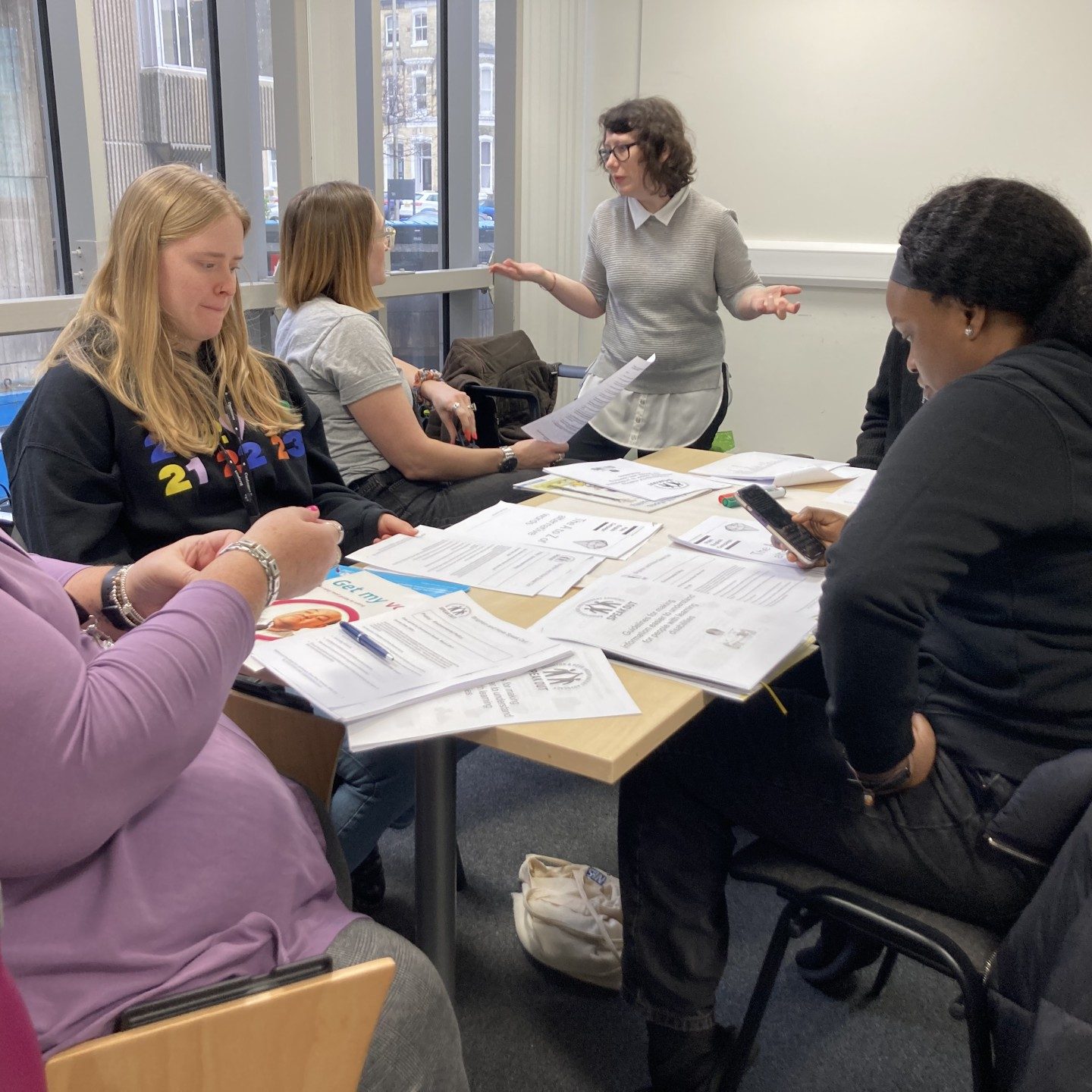
Accessible Information training
The accessible Information Standard (AIS) is a law that makes sure people with a disability or sensory loss can understand information.
It is law that NHS and social care staff services comply with this law to put information into a format that is accessible to people with a disability or sensory loss.
This training provides the necessary information for NHS and social care staff to do this and provides information on how to do this.
This training can be tailored to others, e.g. businesses that want to make their information more accessible to disabled customers.
Learning objectives
- Real examples of experiences that people with learning disabilities have faced when trying to access information.
- Why you should make your information more accessible
- What the law says and what policies have been put in place that organisations should follow
- What makes information more accessible?
- How to make reasonable adjustments
- A practical exercise with guidance to gain experience making your organisation’s information more accessible
Who this course is for?
- NHS and social care staff. This training can also be tailored to others, e.g. businesses that want to make their information more accessible to disabled customers.
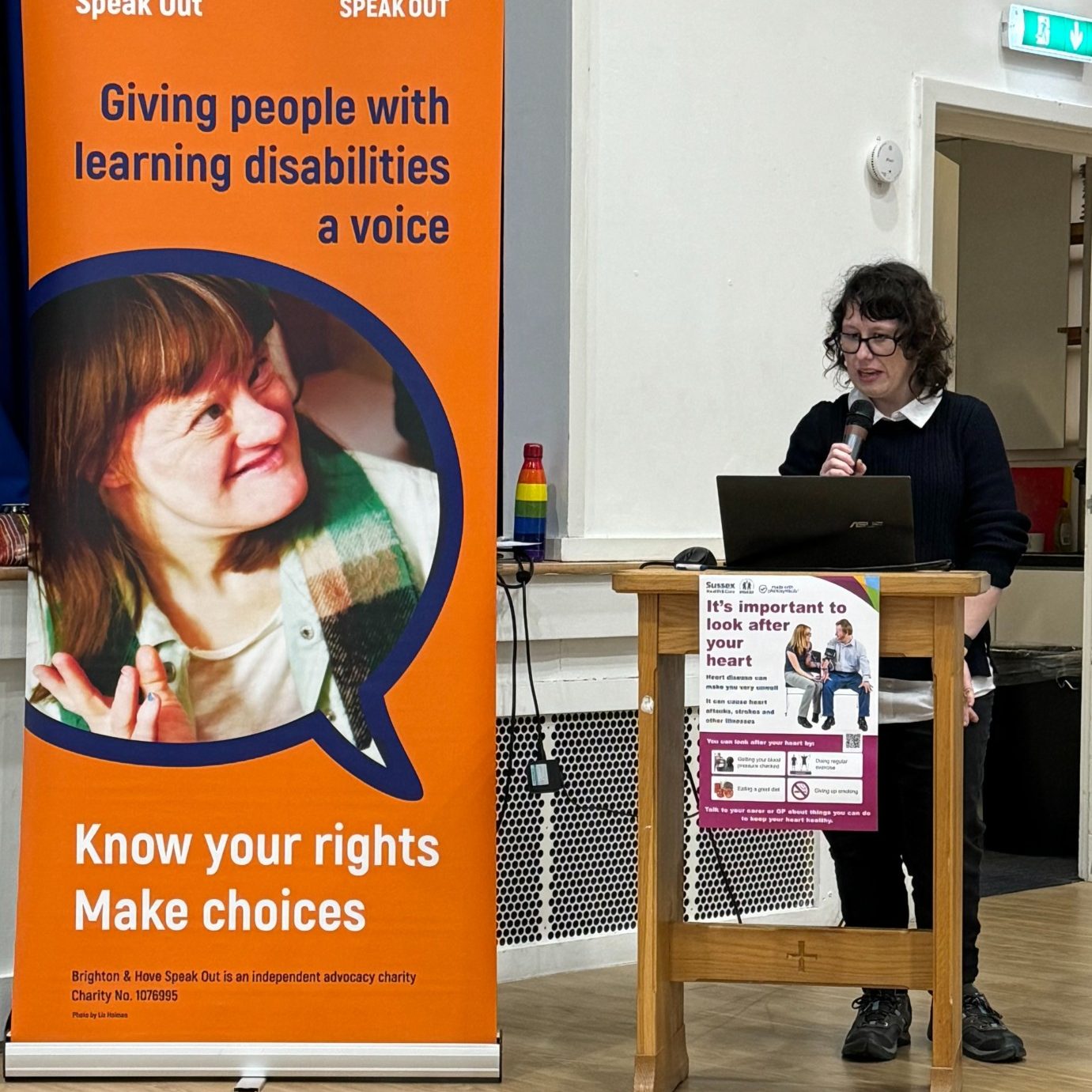
Self-advocacy training for PWLD
Do you have a learning disability?
Do you want to learn how to speak up, be heard, get your views and wishes known, and know what your rights are?
Do you want to be more independent?
Who is the course for?
- For people with learning disabilities who want know more about how to speak up individually and as part of a group.
- Learn about what self-advocacy is, where it came from, your legal rights, and how you can speak up to get the changes they want
